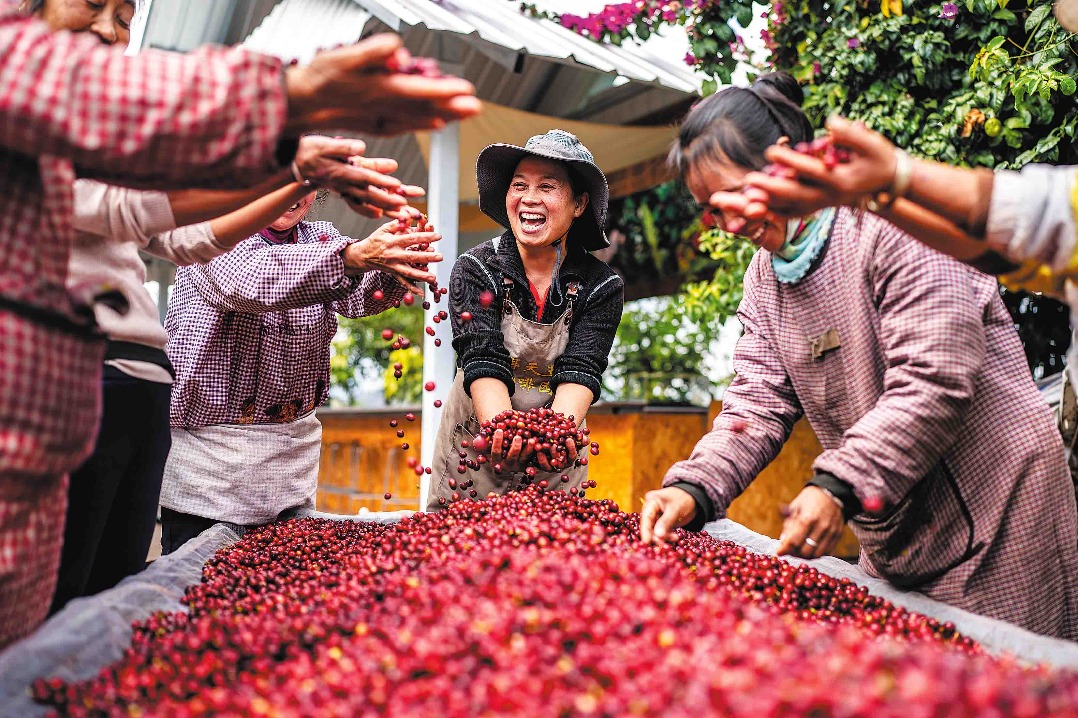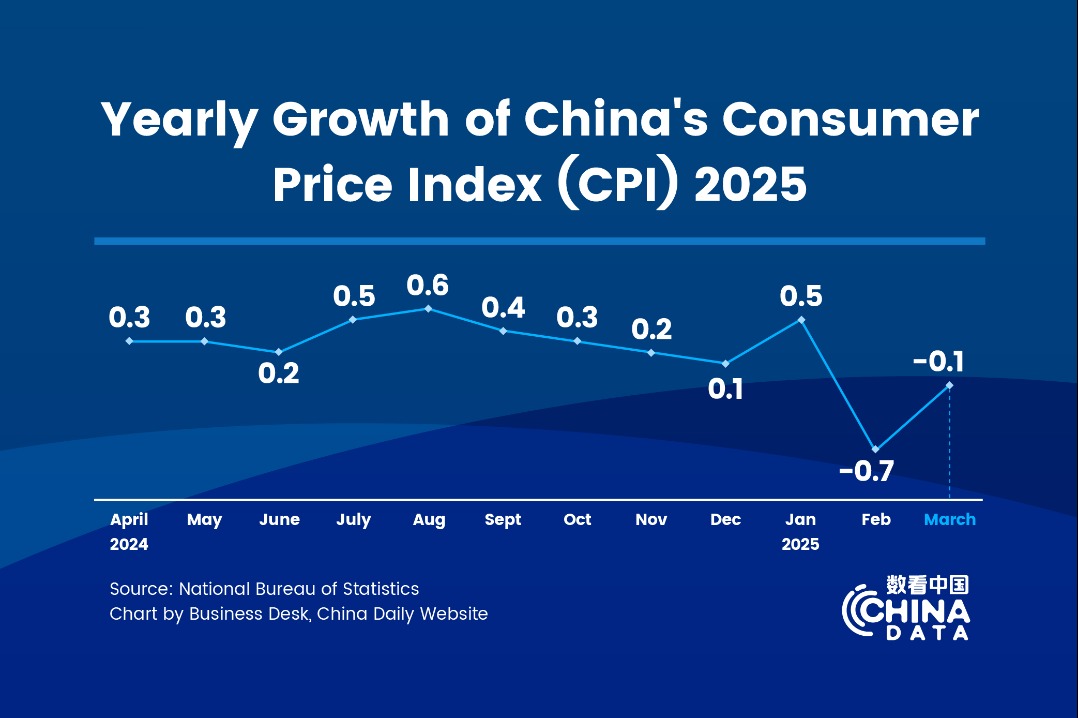Beverage giants find perfect brew in province


This spring, as the coffee planting season begins in Pu'er, the leading coffee-producing region in Yunnan province, Cai Qingkai, a local farmer, has been busy organizing colleagues to prune aging and unproductive branches, with the aim of promoting new growth and improving airflow.
Local coffee planting specialists from the Starbucks Farmer Support Center make visits and assist Cai and his team with maintenance, and prepare the soil with precise fertilization techniques.
"They help us test the soil to identify any nutrient deficiencies, enriching it to ensure the quality of the beans," said Cai.
Cai has also invited local coffee growers to process beans at his farm as part of efforts to improve the profitability of their crops.
"Our incomes last year increased by one-third due to both the harvest and the high quality of our beans. I believe that in the coming years, demand for Yunnan coffee will soar in the market," he said, noting that they are already seeing interest from overseas buyers.
Back in the day, Cai was a long-distance truck driver. Driving at night, he relied on instant coffee to stay awake. Over time, his appreciation for coffee deepened, leading him to make a bold decision to cultivate the succulent beans. The journey from planting seeds to harvesting took three challenging years.
During that time, he received support from the Starbucks Farmer Support Center, established by the US retail beverage giant in 2012 to assist the coffee planting community in Yunnan. At that time, coffee produced in the province faced significant challenges, including pricing pressures and inconsistent quality. Grower morale was low due to such concerns.
The Starbucks Farmer Support Center deployed coffee-growing experts to visit seven to eight farms daily, providing training and advice to improve planting conditions. To encourage the production of high-quality coffee beans, the center offered prices 20 to 30 percent higher than the market average.
Over the past 13 years, Starbucks has purchased more than 65,000 metric tons of quality coffee from the province. The percentage of coffee beans meeting quality standards has improved dramatically, rising from 20 percent in 2012 to 80 percent today, with about 3,411 farms in Yunnan now passing the C.A.F.E. (Coffee and Farmer Equity) Practices certification, according to Starbucks. The center has trained 36,800 farmers in the province as of the end of September.
Cai has modernized his farm by incorporating energy-saving and environmentally friendly planting methods proposed by Starbucks. He has also developed his own methods to successfully combat the negative impact on coffee flavor resulting from overcast and rainy local weather conditions.
His commitment to high-quality planting has yielded impressive results. In 2019, Starbucks Reserve Roastery introduced a coffee bean product named after his farm — a first for a grower from China, with Qingkai farm beans now available at Starbucks stores worldwide.
Today, Yunnan coffee stands as a mature industry, contributing significantly to the region's economy. In its commitment to sustainable development, global food giant Nestle is exploring the "self-growth" potential of Yunnan coffee through various initiatives. Among them, the Nestle Coffee 2030 initiative promotes regenerative agriculture practices aimed at enhancing the quality and yield of coffee beans.
Nestle has developed the Yunnan flavor map project, which seeks to develop a unique flavor identity for Yunnan coffee, positioning it to realize greater international recognition and elevating its profile on the global stage.
The company has continued to prioritize coffee quality, ensuring that all beans sourced from Yunnan meet strict professional standards.
"Nestle is confident in the Chinese market and is increasing its investments in capital, human resources and innovation," said Alfonso Troisi, senior vice-president of Nestle's coffee business unit in China.
"We will leverage our global brand influence, technological expertise and market experience to further empower the Yunnan coffee industry, creating a distinctive flavor profile and expanding its reach among consumers," he said.
With these efforts, Nestle aims not only to enhance the quality of Yunnan coffee, but also to strengthen its position as a leading player in the global coffee market, said Troisi.




































